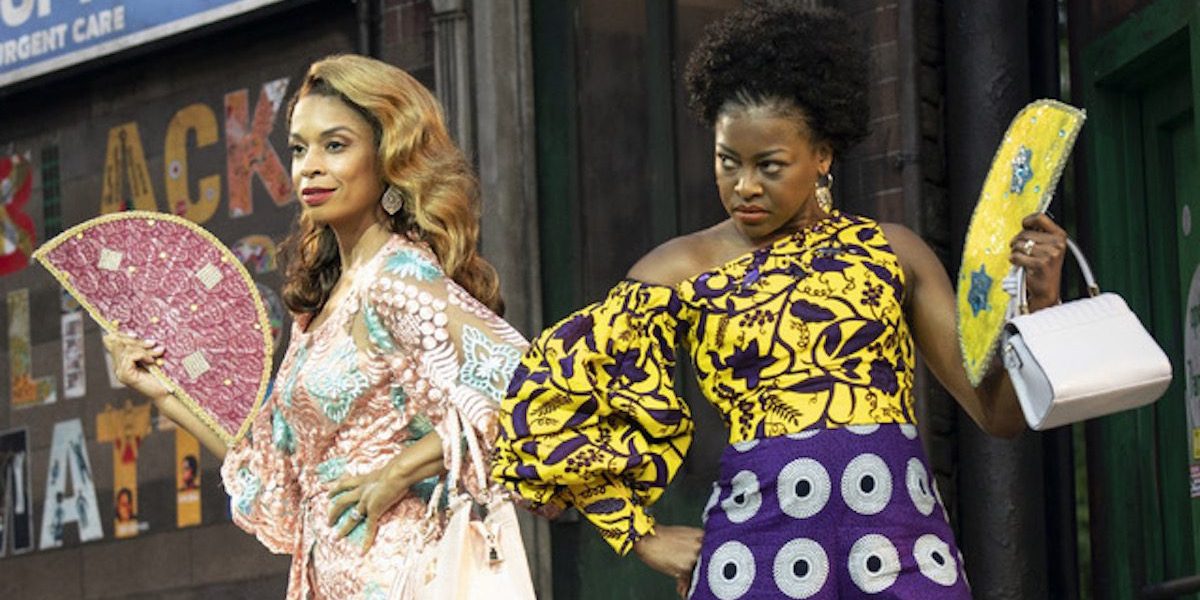A refreshing breeze drifts through the newly-reopened doors of the Delacorte Theater. The amphitheater seats are filling, and the warm stage lights light up against the darkening tree line of Central Park. The Public Theater’s Shakespeare in the Park is back, and the excitement and relief coursing through the crowd are palpable. And there could be no better choice for the return of the Delacorte than Jocelyn Bioh’s adaptation of The Merry Wives of Windsor, delivered with punch, emotion, and no short amount of laugh-out-loud antics to soothe the soul.
Set in a West African neighborhood of Harlem, the all-Black cast portrays a tight-knit community of Nigerian, Ghanaian, and more immigrants whose world is thrown into chaos by the buffoonery of one John Falstaff. Jacob Ming-Trent picks up the joie-de-vivre of the iconic Falstaff, a Shakespearean favorite, with a panache all his own. Ming-Trent’s Falstaff is a magnetic personality, exuding self-confidence and an admirable lust for life while still managing to be the brunt of every joke – with an equally admirable resiliency of spirit. From his jangly intro-track entrance to his decked-out man cave (complete with a poster of himself as the becrowned Notorious B.I.G.), Falstaff is gimmicky, goofy, and over-the-top in every way – and the audience eats him up hungrily, waiting for more.
Not to be outdone are the titular Merry Wives themselves: Susan Kelechi Watson as Madam Nkechi Ford and Pascale Armand as Madam Ekua Page. The chemistry of these two women is part of what sets this production apart, and their intro scene is nothing short of beautiful. Clutching their love letters from Falstaff, they giggle and trade gossip from the chairs of a braiding salon. They match Falstaff blow for blow in his hilarity, but with an elegance and a camaraderie that keeps them three steps ahead of him, and they seem to be the epitome of the show’s slogan, which advertises Merry Wives as “a celebration of Black joy and vitality.”
This production is sumptuous, and nothing short of delicious to the eyes of a theater-starved crowd, and the energy of the night was both electric and cathartic. The ensemble cast instantly felt like familiar characters, and the elaborate set design created a mesmerizing world in which to get lost. For all the joy of this show, however, the creators were also careful to pay homage to Seneca Village, the 19th-century Black community (one of the earliest free Black communities in New York City) infamously torn down by the city in order to make way for Central Park – the very venue of Merry Wives, and a poignant reminder of the constant oppression Black people have always faced in this country.
In its entirety, Merry Wives is a triumph, and a much-needed balm for the theater-starved population of New York. Authentic, rich, and unbelievably funny, it delivers all the joys of live theater along with the feel of watching an old-school sitcom (without the existential crush of your own four walls). There is no other way to recommend this show than to say: if you get the chance to see The Merry Wives of Windsor, do not miss out on this one.

